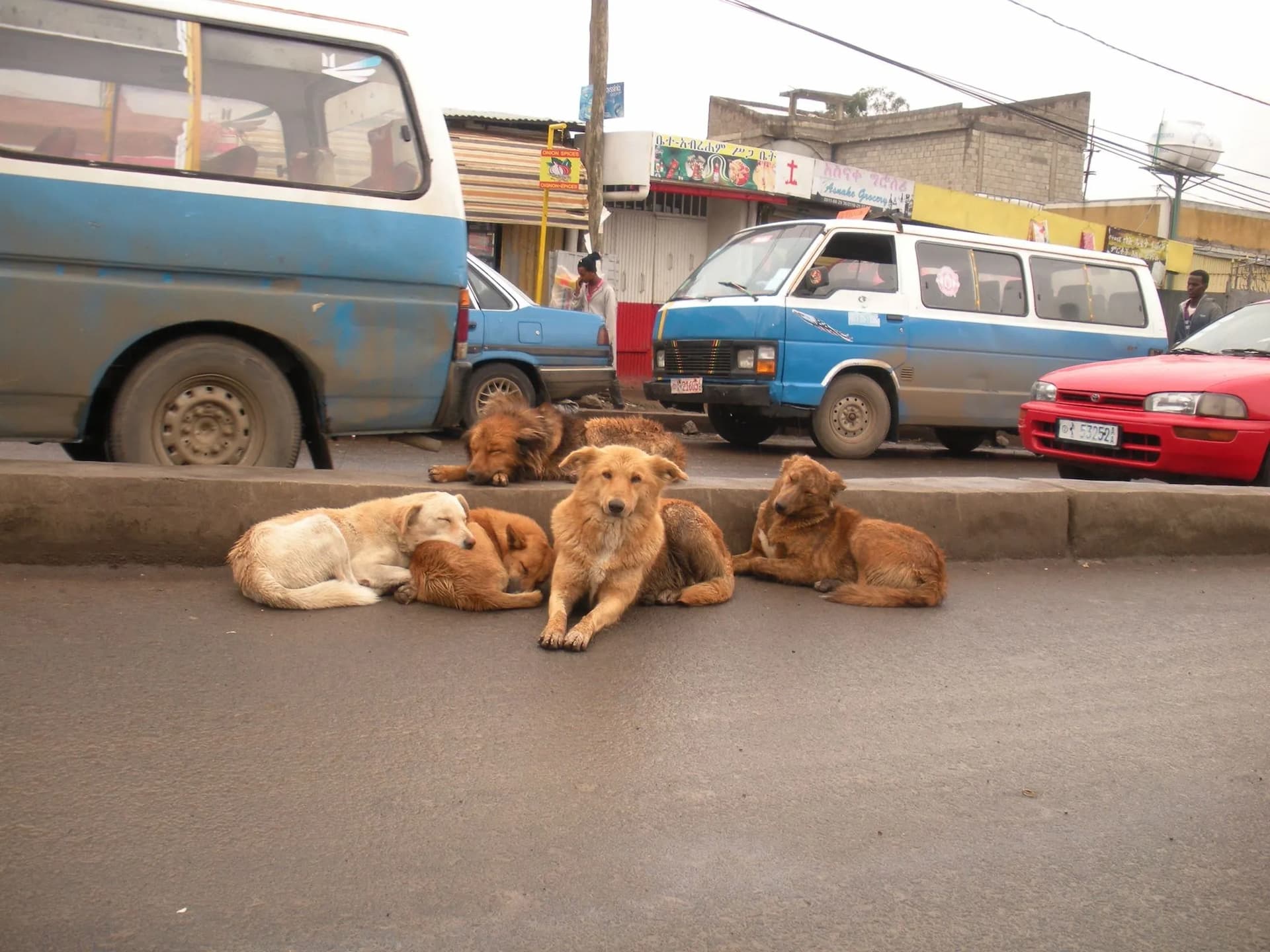Progress for 0 ad
Progress for 1 ad
Progress for 2 ad
Progress for 3 ad


Daniel Metaferiya
Addis Ababa, Ethiopia

On the streets of Addis Ababa, stray dogs are as common as taxis and unfinished construction sites. Some are abandoned by their owners, a few are runaways, while the majority are born into stray populations. Too many end up as roadkill or die from a variety of curable diseases. Over the past two years, Hatchi, a group of animal lovers, has organized through social media to rescue, shelter, and provide veterinary care for the city’s dogs.
Rediet Sisay, a music school graduate with no formal training in animal welfare, has become a lifeline for the city's forgotten dogs. What began with the rescue of a single stray, a mother dog named Hatchi, has since grown into a community-supported initiative that now operates two shelters in Addis Ababa and Adama, in the Oromia region.
“People took her puppies and abandoned Hatchi,” Rediet told Shega. “I could not leave her either.”
That moment in her last year at Yared Music School marked the beginning of what would become Hatchi, the name of both the rescued dog and the rescue effort.
Operating mostly through Telegram and Tik-Tok, Hatchi has blossomed into a digital sanctuary for stray dogs, with community members posting sightings, sharing updates, and contributing donations. Now, Rediet and her team care for over 70 dogs. Most are rescued from the streets after being assessed for injuries or illness.
“We don’t turn away dogs unless we absolutely have to,” she said. “We try to give them medical attention, food, and a safe place to adjust.”
The shelters, pieced together with scrap wood, sheet metal, and plastic, are far from glamorous, but for the dogs, they are palaces. Rediet names each one and calls out to them as she makes her daily rounds.
But the early days before the grassroots group gained traction on social media were much more difficult. “There were days I had no food, for the dogs or myself,” Rediet remembers. After more people started to follow her pages, help began to flow in all sorts of ways. People started sending donations. Some offered their time. Others, their veterinary skills.
Veterinarians in the community continue to volunteer their services, offering vaccinations, emergency surgeries, and health checks. Rediet credits them with helping dogs survive car accidents and illnesses that would otherwise be fatal.
“Some dogs need surgery, I would not know where to start,” she says.
Over the years, a mix of state and NGO actors have tried to address Addis Ababa’s stray dog problem which was estimated at around 250,000 in the mid-2010s. Of the nearly 7,000 rabies cases reported each year, the majority are transmitted from dogs. For decades, nuisance dogs used to be left to die in the Gido cave outside the capital. To date, a comprehensive, well-executed plan has not been rolled out that addresses Addis Ababa’s strays. Most of the work has been left to non-profits and volunteers like Rediet, who can mobilize the resources only for so long
Dealing with stray dogs is not challenging just because of resource shortages, though. Rediet bears scars on her right arm from a recent rescue mission conducted with little if any, safety gear. She does not seem to mind the dangers as she gleams with a proud smile, surrounded by dozens of dogs in the shelter located around St.Giorgis Church in the Summit neighborhood.
Whenever Rediet receives a tip on the social media group, she heads to the location with her partners for an impromptu rescue. A quick health check-up determines whether the strays join the quickly growing family. A 21,000-strong community has grown across both Telegram and TikTok. In the meantime, Hatchi continues to rehome dogs, not for a price, but to responsible, loving families.
“We don’t sell dogs,” Rediet says firmly. “We find them homes.
However, Hatchi is still not a registered non-profit which limits their ability to raise funds, according to Rediet. She has recently applied for a proper license, requested land, and is trying to get loans to scale up their rescue efforts. While they currently give out dog-care amenities for free, Rediet hopes to import them and sell them off to ensure a reliable source of revenue for the shelters.
“We want to be able to provide sanctuaries for abandoned horses and donkeys,” Rediet says.
👏
😂
❤️
😲
😠

Daniel Metaferiya
Daniel Metaferiya is a writer, journalist and radio host, with a keen interest in technology. He follows developments in Ethiopia's startup ecosystem closely and is passionate about profiling unique MSMEs.
Your Email Address Will Not Be Published. Required Fields Are Marked *